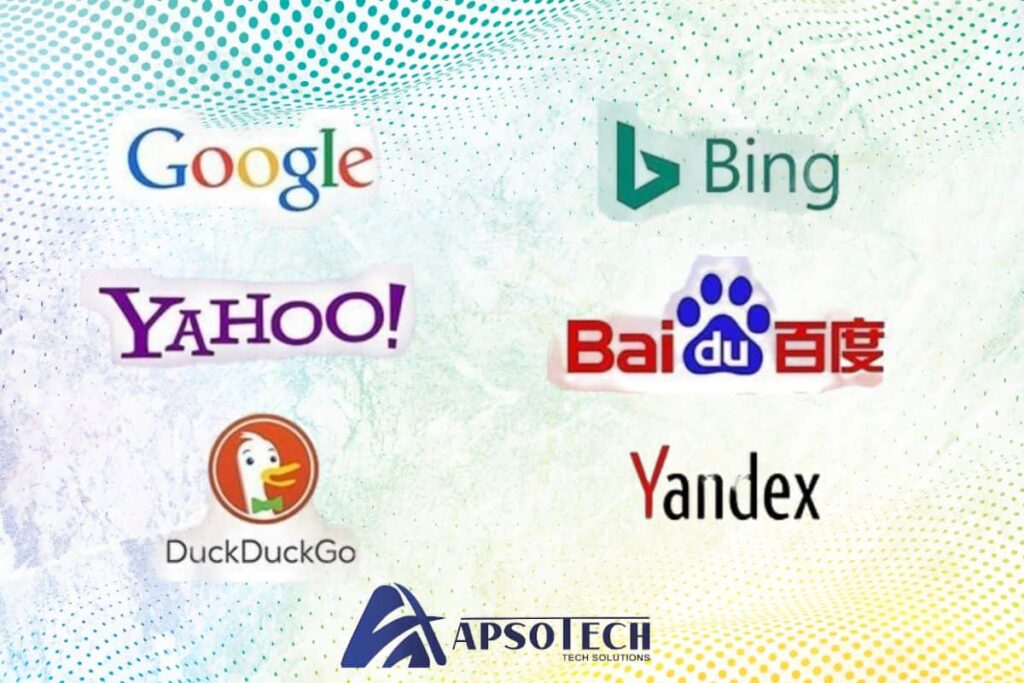Search engines are the backbone of the digital world. Whether you’re researching a product, looking for academic information, or trying to find the best SEO tool, a reliable search engine can make or break your experience. While Google dominates the landscape, many other search engines offer unique features, better privacy, or niche results.
In this article, we’ve compared the 20 best search engines to help you choose the one that fits your needs best. From mainstream options to privacy-first alternatives, discover how they differ and which one may serve you better in 2025.
🔍 Why Search Engine Comparison Matters
Most people use the same search engine every day without questioning its effectiveness or privacy policies. But with the evolution of the web, AI integration, and increasing privacy concerns, users and marketers alike need to understand how search engines differ.
LSI Keywords: search engine alternatives, best private search engines, fastest search engines, top search platforms, search engine comparison, AI in search engines
🥇 1. Google
- Market Share: 91%+
- Best For: General web search, AI-powered results, rich snippets
- Pros: Fast, accurate, tons of features (maps, news, shopping)
- Cons: Collects a lot of personal data
Google remains the industry leader, continuously evolving through innovations like AI overviews and machine learning algorithms. However, its data collection practices raise privacy concerns.
🥈 2. Bing (by Microsoft)
- Best For: Integration with Microsoft products, image and video search
- Pros: Rewards program, visually appealing results
- Cons: Slightly fewer results than Google
Bing has grown significantly, especially with AI integrations via ChatGPT and Copilot, making it a solid contender for both general and professional use.
🥉 3. DuckDuckGo
- Best For: Private and anonymous search
- Pros: No tracking, clean interface
- Cons: Less personalized results
DuckDuckGo is a favorite among privacy advocates and those looking to escape the data-hungry ecosystem of mainstream engines.
⭐ 4. Yahoo Search
- Best For: Email and news integration
- Pros: User-friendly, news-focused
- Cons: Powered by Bing, not fully independent
Yahoo remains relevant for users tied to its ecosystem of email, finance, and lifestyle content.
🔐 5. Startpage
- Best For: Google results without tracking
- Pros: Google-quality results, strong privacy
- Cons: Slower than Google
Startpage fetches Google results but strips out trackers, giving you the best of both worlds.
💡 6. Brave Search
- Best For: Ad-free browsing and privacy
- Pros: Independent index, integrated with Brave browser
- Cons: Still maturing
Created by the makers of the Brave browser, this engine is gaining momentum for its transparency and no-ad search experience.
🧠 7. You.com
- Best For: AI-powered search, customizable results
- Pros: Personalized layout, AI tools integration
- Cons: Limited global reach
You.com lets you control the sources of information you see—great for researchers and developers.
🧑💻 8. Yandex
- Best For: Russian-language and Eastern European content
- Pros: Excellent translation tools, maps
- Cons: Privacy concerns in some regions
Yandex is Russia’s largest search engine and a strong choice for region-specific results.
🌍 9. Ecosia
- Best For: Eco-conscious users
- Pros: Plants trees with every search, privacy-respecting
- Cons: Results based on Bing
If you want to reduce your carbon footprint, Ecosia is a great choice.
🛠️ 10. Qwant
- Best For: European privacy regulations
- Pros: GDPR-compliant, visual search
- Cons: Smaller index
Qwant is popular in Europe and offers search neutrality, meaning no filter bubbles.
📸 11. Swisscows
- Best For: Family-safe search and privacy
- Pros: No tracking, semantic search
- Cons: Less comprehensive
Swisscows is ideal for parents and educators who want safe, filtered search results.
📚 12. WolframAlpha
- Best For: Scientific, mathematical, and data-based queries
- Pros: Computational search engine
- Cons: Not suitable for general search
WolframAlpha answers questions using real data and calculations, not just keywords.
🔎 13. Gibiru
- Best For: Uncensored and private search
- Pros: No logs, no censorship
- Cons: Niche usage
Ideal for users seeking unfiltered results, Gibiru is a go-to for investigative searches.
🧭 14. Dogpile
- Best For: Aggregated results
- Pros: Pulls from multiple sources
- Cons: Cluttered interface
Dogpile is a meta-search engine that compiles results from Google, Bing, and more.
📖 15. AOL Search
- Best For: Legacy users
- Pros: Simple, nostalgic
- Cons: Limited features
Once a giant, AOL Search still serves users who want a minimal, no-frills interface.
🧾 16. Neeva (Now API-focused)
- Best For: Previously: ad-free and private search
- Pros: Formerly great for AI summaries
- Cons: No longer public-facing
Though it pivoted away from public use, Neeva was a pioneer in AI-based search interfaces.
🔍 17. Mojeek
- Best For: 100% independent index
- Pros: Fully original results
- Cons: Less refined algorithm
Mojeek is a rare engine that crawls its own index, rather than relying on APIs or Bing.
🌐 18. MetaGer
- Best For: Ethical, open-source search
- Pros: Anonymous search, German-based
- Cons: Interface needs improvement
Great for privacy-loving users in Europe, especially Germany.
🧠 19. Searx
- Best For: Open-source, customizable search
- Pros: Community-driven, no tracking
- Cons: Needs self-hosting or public instance access
Searx is popular among developers and privacy enthusiasts looking for control.
📢 20. Baidu
- Best For: Chinese-language content
- Pros: Strong within China
- Cons: Censored results, inaccessible without VPN
Baidu is the top search engine in China and necessary for accessing local content.
✅ Comparison Table: Top 20 Search Engines
| Search Engine | Best For | Privacy Score | AI Features | Powered By |
|---|---|---|---|---|
| General Search | ❌ | ✅ | ||
| Bing | Visual, AI Results | ❌ | ✅ | Microsoft |
| DuckDuckGo | Privacy Search | ✅ | ❌ | Bing (anonymized) |
| Startpage | Private Google Search | ✅ | ❌ | Google (proxy) |
| Brave Search | No Ads, Privacy | ✅ | ✅ | Independent |
| You.com | AI Personalization | ✅ | ✅ | Custom AI |
| Yahoo | News & Email | ❌ | ❌ | Bing |
| Yandex | Localized Search | ❌ | ✅ | Yandex |
| Ecosia | Green Searches | ✅ | ❌ | Bing |
| Qwant | European Users | ✅ | ❌ | Bing |
🧠 Final Thoughts: Which Search Engine Is Right for You?
Choosing the right search engine depends on what matters most to you:
- Want the best results with AI summaries? ➤ Google or Bing
- Prefer privacy? ➤ DuckDuckGo, Startpage, Brave
- Need scientific answers? ➤ WolframAlpha
- Care about the planet? ➤ Ecosia
In 2025, search engines are evolving fast—from integrating AI assistants to offering ad-free results and enhanced personalization. Experiment with a few and see what best matches your values and search style.
📌 Frequently Asked Questions (FAQ)
What is the best search engine for privacy?
DuckDuckGo, Startpage, and Brave Search are currently the top privacy-focused search engines.
Which search engine is fastest?
Google remains the fastest in terms of result delivery and indexing, followed by Bing.
Are there search engines that don’t track your data?
Yes. DuckDuckGo, Startpage, Brave, Qwant, and Swisscows all promote non-tracking policies.
What are some alternatives to Google Search?
Alternatives include Bing, DuckDuckGo, Brave, Ecosia, and You.com, among others listed above.
📈 Optimize Your Search Experience in 2025
Don’t just “Google” it—explore smarter. Whether you’re looking for AI-powered insights, ad-free experiences, or eco-conscious browsing, the 20 best search engines compared above offer something for everyone.
By understanding these platforms, marketers, researchers, and everyday users can make more informed decisions in this AI-driven internet era.



